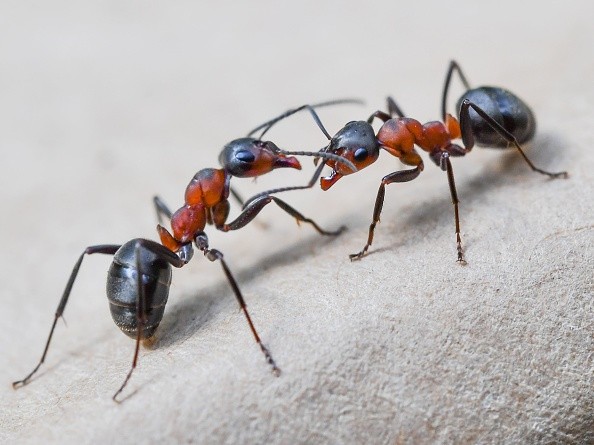Researchers discovered that ants played a significant role in the environment in forest regeneration and seed dispersals.
Ants may be tiny, but their contribution to forests has been immense.
Ants provide vital ecosystem support by dispersal mutualisms, benefiting plants and global forests.
How ants help forest regeneration

The research findings were published in Ecology and are available to read here.
According to lead author Carmela Buono, ants serve as keystone dispersers.
The process is also called animal-mediated seed dispersal. Buono is from Binghamton University.
To further illustrate the study, the researchers looked into understory plants with the presence of ant seed dispersal.
Furthermore, the study noted that about 20 New York City state forests were observed for the contribution of ants to forest regeneration.
According to the study in ESA Journal, the researchers considered observing the mutual relationships and partners for seed removal and dispersal.
The mutual relationship between plants and ants is also found in North America and Asia.
How ants get the seeds would depend on their interests. According to the study, woodland ants prefer species that could be nutritious to healthy for their nests.
Meanwhile, the researchers emphasized plants' beneficial role; however, invasive slugs that compete with seeds could also disrupt their emergence.
Impact of climate change on the world's forest
Forests have been crucial habitats for wildlife and flora. However, global forests also suffer from climate change and global heating.
In a recent report, The Guardian reported that the rapid global heating had a profound impact on forests in parts of Americas.
Climate change and rapid global heating could increase the risk of wildfires that could affect forests instantly.
In addition, forests suffer from widespread illegal logging.
In previous articles, Nature World News reported the crucial role of animal conservation in forest recovery.
Researchers emphasized that animals could help with restoration efforts by carrying seeds in deforested areas.
The study findings were published in Philosophical Transactions of the Royal Society B journal.
Animals like bats and birds help to disperse seeds in forests.
However, different research explained that bats could also protect seeds from possible insect damage.
According to research published in Ecology, the researchers showed that bats are essential to maintaining healthy seeds and young forests.
The report added that bats could eat insects, which is also an effective natural pest control.
In an experiment, the researchers discovered insect damage became more visible without bats.
Forest regeneration is a growing field for researching insects and animals' roles in global forests.
Furthermore, the role of conservationists and local communities is vital to protecting forests from the decline and threats of climate change.
The protection of seedlings and seedling dispersal is key for an abundant forest population.
Without conservation efforts, forests would receive a significant impact from climate change, which could affect biodiversity and animals.
Related Article : Environmental-Friendly Pest Control: Spider Webs Helpful to Protect Agricultural Crops
For more similar stories, don't forget to follow Nature News.
© 2025 NatureWorldNews.com All rights reserved. Do not reproduce without permission.





